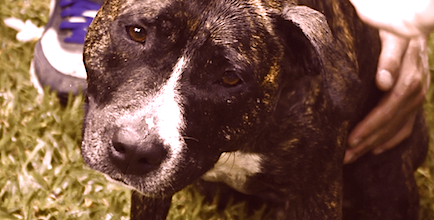10 Things Animal Shelter Staff Wish You Knew
From pet peeves to uncommon knowledge, the staff at animal shelters deal with misconceptions regularly.

Shelter workers spend as much of their careers surrounded by misconceptions about shelters as they do surrounded by animals. From pet peeves to uncommon knowledge, the staff at animal shelters have recurring concerns they wish they could share with every visitor who enters their shelters.

Don’t leave your pet’s safety to chance
Sign up for Petful recall alerts today.

1. Shelter Animals Are Not “Broken”
There are a countless number of reasons people need to surrender their pets to shelters:
- They find they have no time for their dog.
- A child in the family has allergies to their kitten.
- The family is moving and can’t take the pet.
Of all the reasons pets wind up homeless, seldom is it the animal’s fault.
2. Your Pet Is Not a Donation
Shelters rely heavily on the support of their communities. That means that they need your donations — both monetary and material — in order to care for the pets that they house.
Many items can be considered a donation:
- Blankets
- Toys
- Food
Your pet, however, is not a donation. To avoid the ire of the shelter staff, don’t refer to your cat’s seventh litter of kittens as a “donation.”
3. Shelter Staff Love the Animals
Thousands of animals may pass through a shelter’s doors in a single year, but shelter workers love those animals dearly. They form intimate bonds with the pets that people cast aside and work to find these animals the homes they deserve.
4. Shelters Are Not Horrible Places
True love happens in shelters. Really — it does every day:
- Families are completed.
- Pets are reunited with their people.
- Second chances turn into happy endings.
Often animal shelters are unfairly treated like prisons instead of being treated like adoption centers.
5. Obey the Signs
Animal shelters seem to love signs almost as much as visitors like to ignore them. Although we’d all love to assume those pesky signs don’t pertain to us, they do. And they’re important:
- Staff Only: Your animal shelter isn’t hiding Narnia. Behind that door you’re only going to find a grooming room or a line of bowls being filled with the day’s kibble rations.
- Don’t Touch: Shelters are trying to stop the spread of disease or prevent a scratch or bite.
- Don’t Open the Cages: This one is pretty obvious. And yet, visitors will still insist on opening up cages and letting the pets go. Don’t do it. Ask for assistance if you want to meet someone special.

6. Most Shelter Workers Are Not Vets
It’s awesome that you’re actively seeking advice for your pet’s well-being, but if a shelter worker suggests that you seek professional advice from a veterinarian, take their word for it.
Vets have years of medical schooling and experience to apply to your pet’s particular situation. They are your best resource when managing health or behavioral issues.
7. Many Shelters Don’t Have Time Limits
Just because a shelter isn’t no-kill does not necessarily mean it sets a time limit for each animal. You may find adoptable pets who have been in search of their forever home for weeks, months or even years.
8. Adoption Fees Are Not Price Tags
Few things can suck that warm and fuzzy feeling out of an adoption like a completely unexpected 3-digit price tag at the bottom of the contract. Try to remember a few things about adoption fees:
- Shelters don’t profit financially from adoptions.
- These expenses rarely cover even a small portion of the resources put into your new pet.
9. Shelter Workers’ Jobs Are Difficult
It’s hardly a secret that working with animals can be emotionally exhausting. The physical intensity of working with shelter pets is often overlooked, though. Spending your days scrubbing cages and lifting bags of litter and food is difficult.
10. Shelters Need Your Support
A little-known fact is that many animal shelters receive no government funding. They are private, nonprofit establishments that are solely dependent on charitable contributions to remain open.







